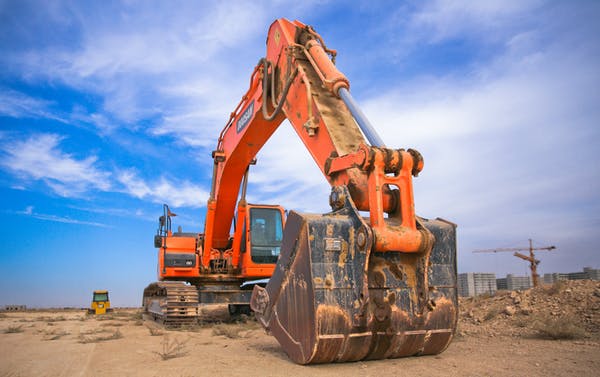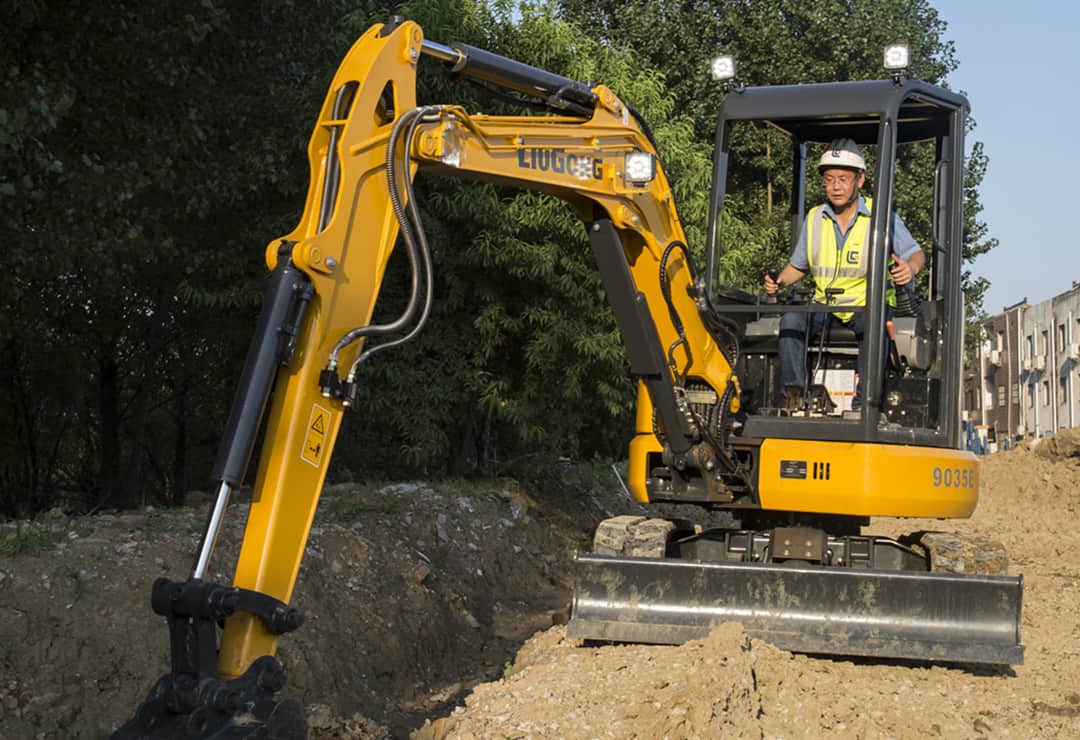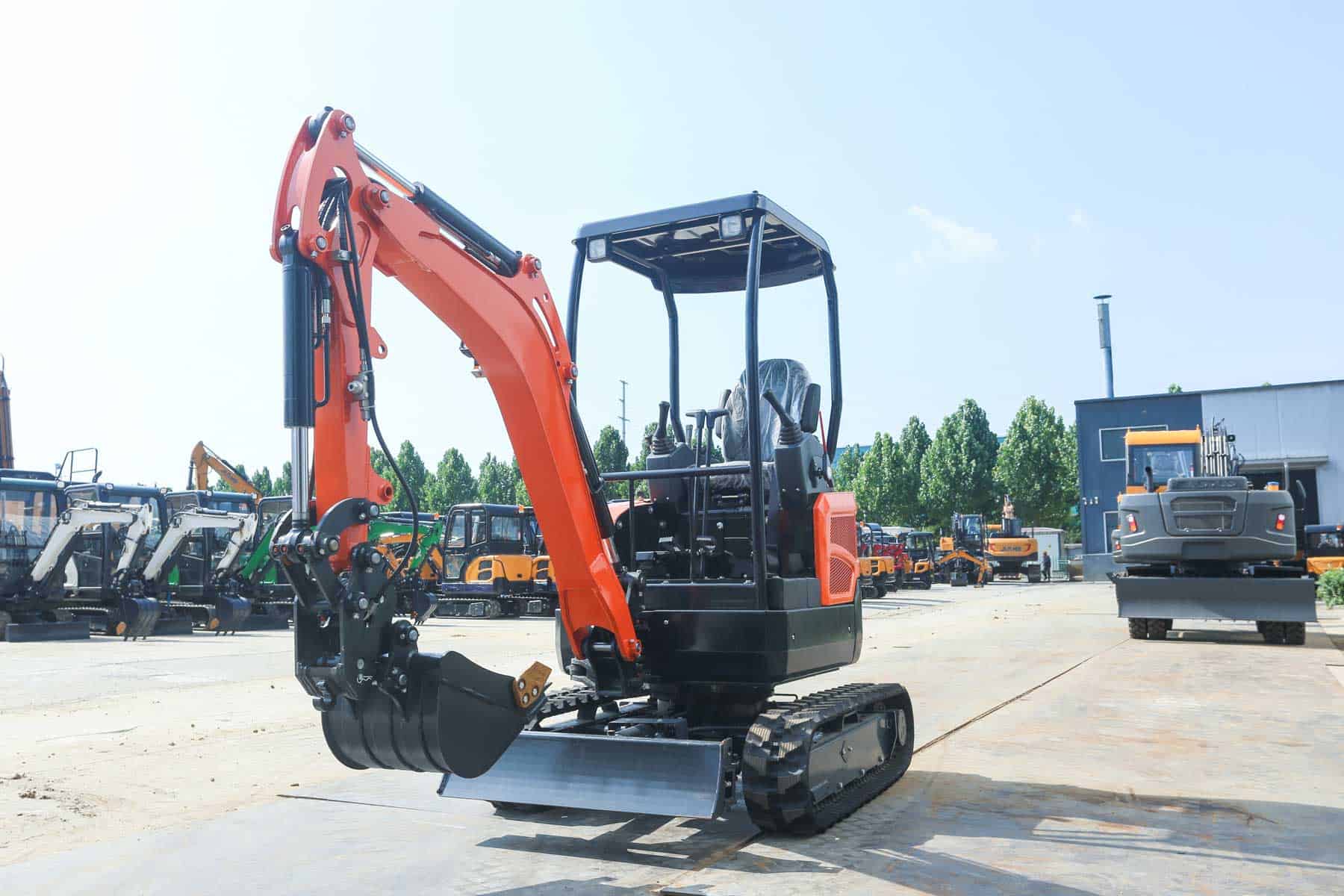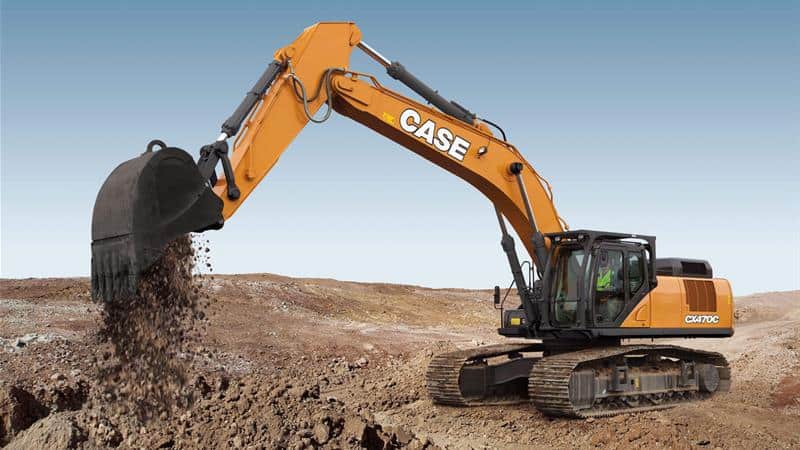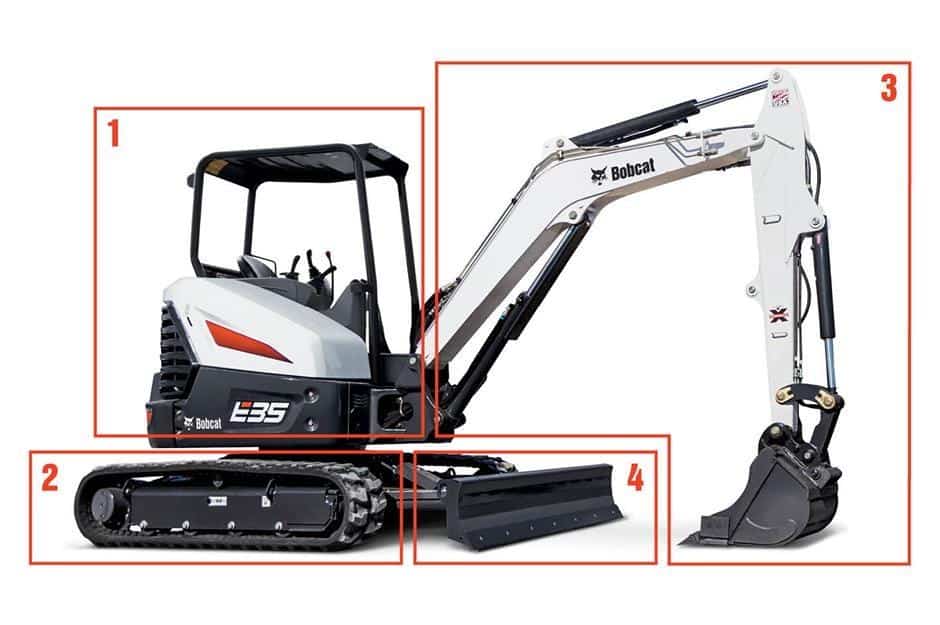Introduction:
Buying an excavator can become a nervous experience. First of all, mini excavators are one of the essential types of heavy equipment in construction. The versatility in these allows contractors to handle any job, from landscaping to demolition. Basically, whatever your company needs, you’ll probably be able to find a suitable excavator type for that job.
However buying an excavator is not as simple as walking into a hardware store, placing an order, and driving out with a brand-new machine. Knowing what to look for in heavy equipment is a challenge and the purchase has to result in improved productivity for your business. So in this article, we will discuss various important questions and things you should consider while buying an excavator. Hopefully, at the end of this, you’ll know all the critical aspects of the purchasing process.
Factors that need to be considered when buying an excavator:
Size:
When it comes to picking the right excavator bigger isn’t always better. Purchasing a large excavator to dig up a pool during home renovation might be considered overkill. On the other hand, getting an excavator without the needed dig deep depth will result in performance issues and delay the completion time of the project. So before picking an excavator for purchase consider the following things. These points will help you to determine the exact suitable type and size of excavator for different projects. Once you’ll find your requirements, you’ll be able to find the right machine for the job.
- Difficulties and job site requirements
- Lifting capacity
- Bucket capacity
- Transportation and access
- Dig depth
- Hydraulics
- Reach length
Categories:
Before you contact a seller, know the spec requirements for the job, as this will help you determine the size of the machine you’ll need. You’ll also need to consider ahead of time whether or not you’ll need any support attachments, such as couplers, rippers, and hammers.
Compact or mini excavator:
Mini or compact excavators are those which have less than 6 tons of weight. Due to their size, they’re considered ideal for jobs in tight or small areas that don’t require too much power. The best thing about mini excavators is that they’re easy to maneuver and transport, so you’ll usually find them on working sites for sewer repairs, utility installations, or landscaping.
Midi Excavators:
These excavators weigh between 6-10 tons and have more power and capacity than mini excavators. They are mostly used for standard construction work. Midi excavators have more digging and lifting capabilities while still being small enough to work in smaller spaces.
Standard Excavators:
This category has a wide range of applications. These machines can weigh between 10-90 tons, but the ones having 19-24 tons of weight are the most common. The majority of them are full-sized with a range of features. This allows them to be used for most commercial construction where you need more power and capacity. The only disadvantage that this category has is transportation. Transporting them from one place to another is quite tough because you need trailers and trucks to move them. Getting the right size machine actually makes a huge difference in job delay and job completion time. So finding exactly what you require in terms of type and size is really important, otherwise, you can expect poor job efficiency. In addition to ensuring you have a trailer that is equipped to transport your excavator, you’ll also need to make sure your drivers have the correct certification and that your trailer will be able to maneuver successfully to and from your job site. Certain roads and bridges, for example, may not allow oversized loads. What’s more, these are all added expenses that you’ll need to factor in when budgeting for your purchase.
Buying a new one is better than a used one:
After choosing the right size of the machine, price is one of the most significant factors in choosing the right excavator. It comes down to deciding between new or used. Both have pros and cons, but it ultimately depends on which is more beneficial in your company’s best interest. The brand new machine is always a temptation and has more advantages as compared to the used ones. The new one will be able to work all day consistently and you won’t get worried due to sudden breakdowns.
Moreover, repair expenses will be a lot low and if there are any they will be covered with a warranty. Optimal productivity, comfort, and safety compliance are also advantages of new ones. But at the same time, there are some drawbacks also involved in buying a new excavator. First and foremost the high price upfront. The new latest models cost way more than older machines and not many companies are financially prepared for that investment. The other thing is depreciation. Everyone has an idea that the resale value of new machines drops faster than of older machines and is highest during the first few years of use. If you’re not looking for the latest features and still want to get a good and efficient excavator for a lower price then look into the used heavy equipment market.
Exact prices of new and used excavators:
New excavators can cost between $100 000-500 000. This price doesn’t include any extra buckets or attachments. Buying smaller machines will be significantly cheaper than but still not as cheap as used machines. For example, a new 20-ton excavator will cost roughly between $70 000-125 000, while a used one price is between $44 000-59500. So you can save at least 25% with a used one.
The true cost of an excavator:
The price of an excavator isn’t the figure which is mentioned on the attached price tag. In fact, there are many other hidden charges which you need to pay as well. All of this including the hidden expenses is often referred to as the total cost of ownership. Any buyer uses it as a framework to analyze their purchasing decisions. Buyers look at the short-term price (such as the dealer’s price during the acquisition) but also long-term maintenance costs, depreciation, insurance, and fuel consumption. So before finalizing your buying decision, you need to consider all these direct and indirect expenses.
Estimated maintenance cost:
Maintenance costs will be obviously higher for the used excavators than for the new ones. If we buy a new machine for $80 000 with an expected lifespan of 10000 hours, it will cost us $8 per hour. It will be doubled in the case of used excavators. There is a lot to consider while buying used equipment other than the price dictated by the dealer. For the investment to truly pay off, always think about the other expenses as well which you have to cover once you purchase an excavator.
Comfortable to operate:
Probably operator comfort is the last item on your list of considerations when you’re looking to buy an excavator. Although the buying decision is often dictated by budget and job requirements but the well-being of the operator and the comfort to operate should also be your priority. When operator sits in an uncomfortable chair for long hours they easily get fatigued or develop back problems or other illness. Fatigue is a major concern for excavator operators because it reduces their mental ability which makes them less productive and motivated.
Not only this in such situations their reaction time becomes slow which could potentially harm other workers on site or cause an unpleasant situation. In the year 2019, almost 80 000 non-fatal injuries were reported in construction and nearly half of them are from overexertion of contact with equipment. This costs employers $1 100 per worker so it not just harms your workers but also harms your business too. Fortunately, manufacturers are increasingly designing excavator cabs with operator comfort in mind. Design improvements are more focused on accommodating different needs to keep operators efficient, satisfied, and fatigue-free. Remember, investing in an excavator that will enhance operator comfort will pay off in the long run. You will have fewer expenses due to injuries and medical absences, and you’ll maintain peak performance from your workers. To minimize the potential losses in labor and time, consider these key elements that contribute to making your excavators more comfortable to operate.
- Plenty of room and space
- An ergonomic chair
- Adjustable seats
- Good heating and air conditioning system
- Easy-to-access controls
Management:
Like any other heavy equipment, excavators do need ongoing management for optimal use. It’s really important to know the present condition of your excavator to lower your cost of ownership. It also ensures better productivity and business operations. Other things including in management are conducting inspections after use, performing routine maintenance, and controlling access to your heavy equipment. One of the most important steps in this regard is the installation of tracking software on your machine. It will provide you with real-time updates on productivity, maintenance, and utilization of all your assets. Through this you’ll have the right information at all times, so you’ll plan repairs, check warranties, and respond to alerts faster. It also keeps you aware that any downtime in construction seriously affects the outcomes and workflow of the project.
When you implement systems that enable you to complete tasks more rapidly and preventive measures (such as scheduled repairs), you’ll severely save money and time. So the most significant benefit of tool tracking software is enabling preventive servicing. It can help you to save up to 25% on repairs.
Slew ring damage:
Slew rings are one of the most expensive items to replace or repair, so it’s important that you ensure that there won’t be any damage to the slew ring of your hydraulic excavator. It’s essential if you’re purchasing a used excavator because poor machine maintenance like overloading and insufficient lubrication can lead to early slew ring failure. During inspection make don’t forget to rotate the housing to a quarter turn and check for any play movement.
Check loose connections in stick, bucket, and boom:
Bearings and pins should be tight, particularly in the excavator stick and bucket connection points. It’s important to check this as any looseness because play or movement in the excavator’s connection points could affect the accuracy of the machine. Also, check for cracks in the connection point welds between the boom and stick and the stick and bucket. If you spot any cracks ask the dealer to replace that part or don’t buy that machine. Look for any dents or damages in the excavator’s undercarriage. That might be due to the carelessness of the operator due to any potential accident.
Some other factors need to be considered when buying an excavator:
Check for leaks:
Inspect the hydraulic pump compartment for any leakage. Also check the hoses, cylinders, and lines.
Double-check the hour’s meter:
Clear any doubt about the hour’s meter reading through the control pedals. If you observe that seems excessive this could mean that the meter is broken or has been altered and the machine has logged more hours than the meter reading.
Examine the bucket teeth for scalloping:
Scalloping is the wear that occurs between the bucket teeth, in the shape of half moons indicating that the excavator has a reduced cutting force.
While this occurs normally over time and doesn’t necessarily mean that the bucket needs to be replaced but it’s something to consider while evaluating the overall value of the machine.
Dealer repute and trust:
It’s sensible to develop a long-term relationship with a dealer especially if you foresee the need to make any construction equipment purchases, rentals, or repairs in the future. It’s important to choose a dealer or company which is not only knowledgeable but ethical and dependable as well.
Conclusion:
A powerful excavator is a great tool to get any job done on time. But not all excavators are the same, so there are crucial questions you need to answer before you buy your next excavator. Think about the type and size of the excavator that will suit your needs. Then you can properly compare the prices of the used and new machines but don’t forget about the hidden costs. Furthermore, maintaining the excavator and keeping track of its use is crucial to ensure the longevity of any heavy equipment.
We HIOSEN is one of the leading excavator manufacturers based in China. Most of our mini diggers and midi excavators are exported outside. Welcome to contact us for any questions.

